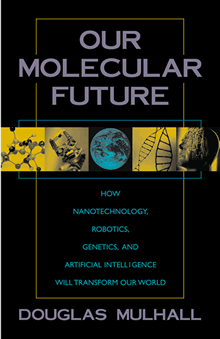<!--
var message1 = "The menu should already be visible on the left side of the browser window!";
var message2 = "You are already at www.ourmolecularfuture.com. Please use the menu on the left to navigate the site.";
var message3 = "This page is part of a frameset which will load now.";
function checkFrameset(display) {
if(!parent.menu)
{
alert(message3);
location.href="http://www.ourmolecularfuture.com/index.html?" + location.pathname;
}
else
{
alert(display);
}}
// function checkFrameset() {
// if(!parent.menu)
// location.href="../index.html?" + location.pathname;
// }
function MM_swapImgRestore() { //v3.0
var i,x,a=document.MM_sr; for(i=0;a&&i<a.length&&(x=a[i])&&x.oSrc;i++) x.src=x.oSrc;
}
function MM_preloadImages() { //v3.0
var d=document; if(d.images){ if(!d.MM_p) d.MM_p=new Array();
var i,j=d.MM_p.length,a=MM_preloadImages.arguments; for(i=0; i<a.length; i++)
if (a[i].indexOf("#")!=0){ d.MM_p[j]=new Image; d.MM_p[j++].src=a[i];}}
}
function MM_swapImage() { //v3.0
var i,j=0,x,a=MM_swapImage.arguments; document.MM_sr=new Array; for(i=0;i<(a.length-2);i+=3)
if ((x=MM_findObj(a[i]))!=null){document.MM_sr[j++]=x; if(!x.oSrc) x.oSrc=x.src; x.src=a[i+2];}
}
//-->
 |
|
If you're...
|
 a
teacher, lecturer, or student a
teacher, lecturer, or student
|
|
For business and economics students, the book shows
how genetic computing and open source may transform manufacturing
and patents It gives ideas about what startups might flourish
in the molecular economy. Learn how whole new industries might
emerge from our new capacities to cope with natural hazards.
For students in environment and natural science this supplements
course materials:
- For environment, it identifies challenges to the
Precautionary Principle and the doctrine of sustainable
development that are posed by molecular technologies, but
also by naturally occurring disruptions (see chapter 11:
An Elephant in the Room of Environmentalism, and chapter
18: The Right Questions)
- For natural science, it summarizes new discoveries
about naturally occurring climate changes and ecological
disruptions that are changing our views about the stability
of the natural world and our ideas about gradual evolution
(see Part II: Nature's Time Bombs).
- For scientific ethics, it gives an overview of
the ethical questions that scientists have to ask when they
are developing these powerful new tools. (See chapter 20:
Bypassing the Road to Hell).
It provides endnotes that are accessible to students, and
web links that focus on web sites such as New Scientist,
Nature, and Technology Review.
The book is extensively indexed for quick referencing.
|
|
 an
executive an
executive
|
|
Learn about startups that might flourish in a molecular economy,
and how a new industry might emerge from our abilities to
cope with natural hazards. And guess what? A computer is outdoing
your corproate investment advisors.
|
|
 a
health care provider a
health care provider
|
|
New research into nanobacteria, malaria, and robotic surgery
may alter the way we treat disease along with the priorities
that we put on tropical economies
|
|
 a
life scientist a
life scientist
|
|
Worriede about a potential ban on nanomaterials ?Here's one
potential path out of the impasse that has evolved between
the life sciences and environmentalists.
|
|
 an
environmentalist an
environmentalist
|
|
Molecular technologies and natural changes each pose profound
challenges to the Precautionary Principle and the doctrine
of sustainable development.
|
|
 a
politician a
politician
|
|
Guess what? Democracy may not work in the molecular economy
without help from artificially intelligent machines.
|
|
 a
librarian a
librarian
|
|
Choice Magazine put Our Molecular Future on its list of Outstanding
academic titles.
It provides endnotes and web links that also lead to respected
web sites such as New Scientist, Nature, and
Technology Review.
The book is extensively indexed for quick referencing.
This is the first book to examine the relationship between
climate changes, natural disaster preparedness, and new molecular
technologies. It includes a brief history of the development
of molecular nanotechnology from 1959 until the present, plus
overviews of who are the leaders in the molecular technology
field.
This book will be valid for years to come, not just for a
few months, because the material it contains reaches far into
the past and well into the future.

|
|
|
|
|
|
If you're convinced that...
|
 ...machines
will never learn to think for themselves ...machines
will never learn to think for themselves
|
|
 ...you're
safe from an earthquake because you don't live in a seismic
zone ...you're
safe from an earthquake because you don't live in a seismic
zone
|
|
 ...human
beings are more of a threat to our environment than nature
is ...human
beings are more of a threat to our environment than nature
is
|
...then read Our Molecular
Future
|
|

|
|
